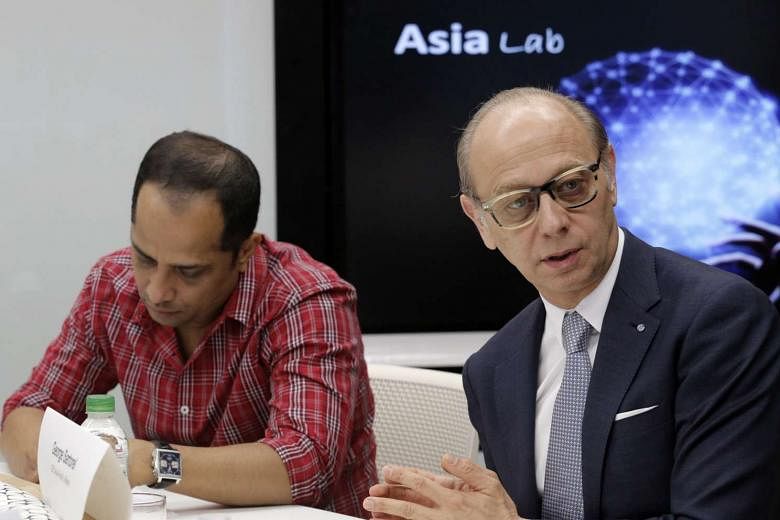SINGAPORE - In March, the Monetary Authority of Singapore asked the global financial technology, or fintech, community and members of the public for what they thought were problems in finance that could potentially be solved with technology.
The result: 100 "problem statements", that the MAS is now inviting fintech firms from around the world to tackle.
The MAS' chief fintech officer, Mr Sopnendu Mohanty, announced these problem statements on Tuesday during an MAS conference on globalising fintech.
The event, which was attended by representatives of fintech start-ups and traditional financial institutions, was marked by a distinctively laidback atmosphere, as the central bank shrugged off its usual stern image as regulator and emphasised its open-minded and progressive attitude towards fintech. MAS staff, including managing director Ravi Menon, wore t-shirts. Techno music and flashing strobe lights made an appearance.
Mr Mohanty said the problem statement were all crowd-sourced, with no input or moderation by the MAS. "We did not regulate them," he quipped.
They fall into 11 broad categories, such as payments, trade finance, financial literacy and insurance.
Under the financial literacy category, for example, one problem statement notes that consumers still lack guidance on how to better manage their finances.
The challenge: develop a comprehensive personal financial management tool that would enable consumers to understand the fundamentals of personal finance and the benefits of sound financial management, in exchange for instant gratification.
One problem statements under the category of payments notes that schools in Singapore still require cash payments for transactions ranging from school bus services to enrichment classes. And so fintech firms are invited to design a solution that would enable a cashless school system.
Fintech firms have until the end of July to submit their ideas and proposed solutions to any of these challenges.
In August, 20 teams will be shortlisted by an international panel of experts, for the grand finals of the Global FinTech Hackcelerator. These teams will then work with mentors and receive technical support to develop their ideas and build a working prototype of their solutions. In November they will present these prototypes at a Demo Day during the Singapore FinTech Festival. Up to three teams will be named winners.
"We'll have real companies solving real problems, backed by real demand," said Mr Mohanty.
The Hackcelerator and FinTech Festival are part of MAS' efforts to develop a future-ready financial industry in Singapore, one in which technology is harnessed to create more efficient and consumer-centric products and services.


